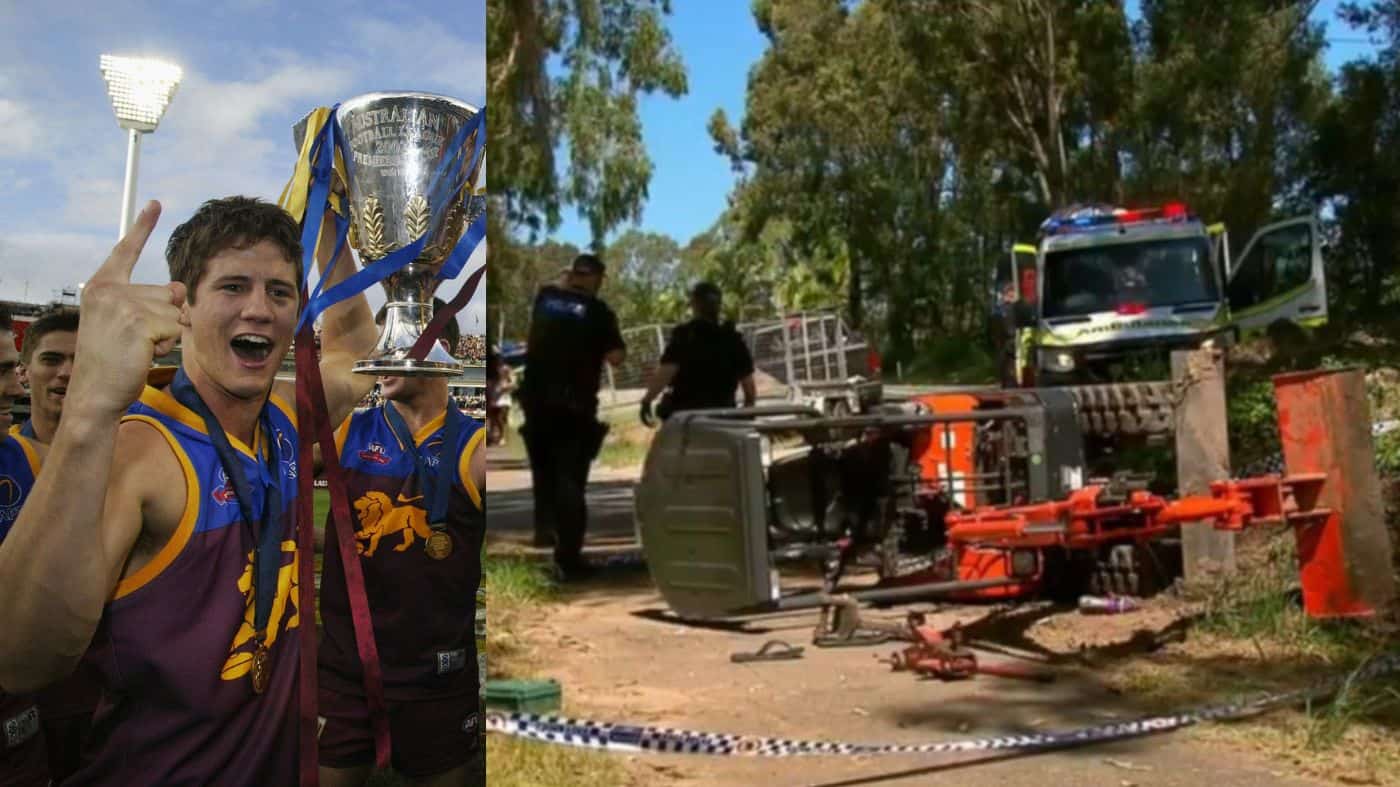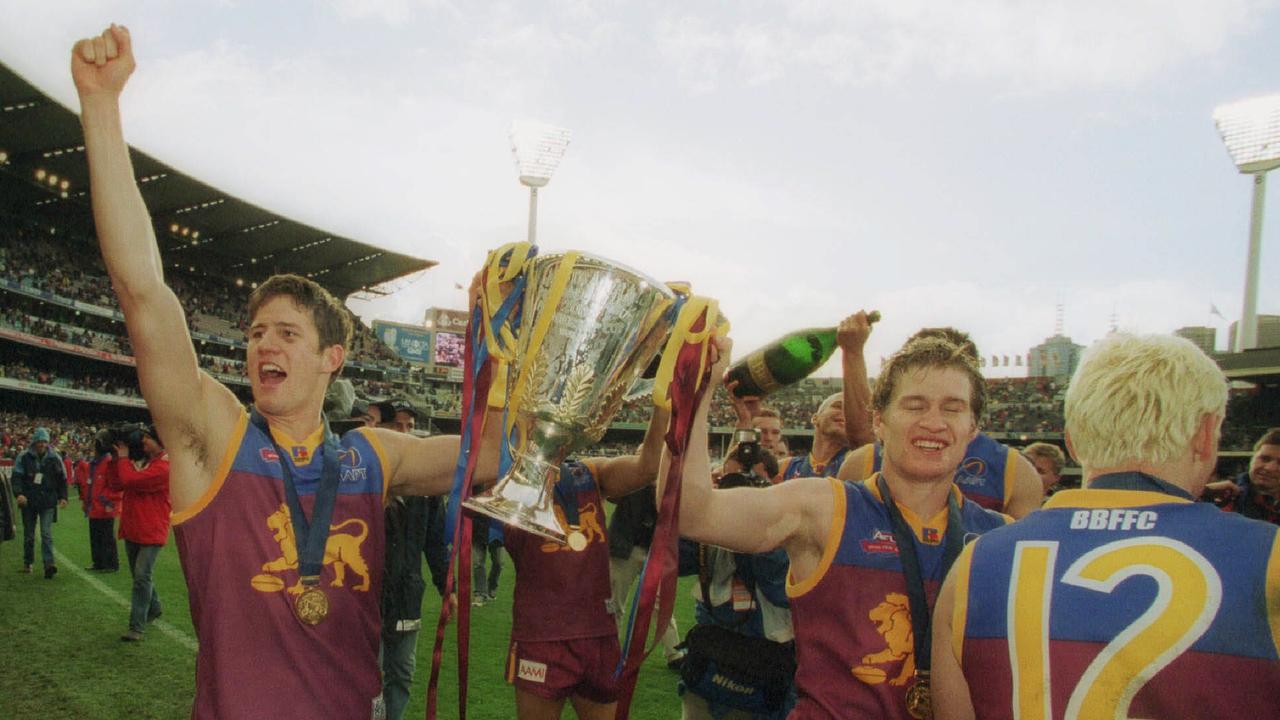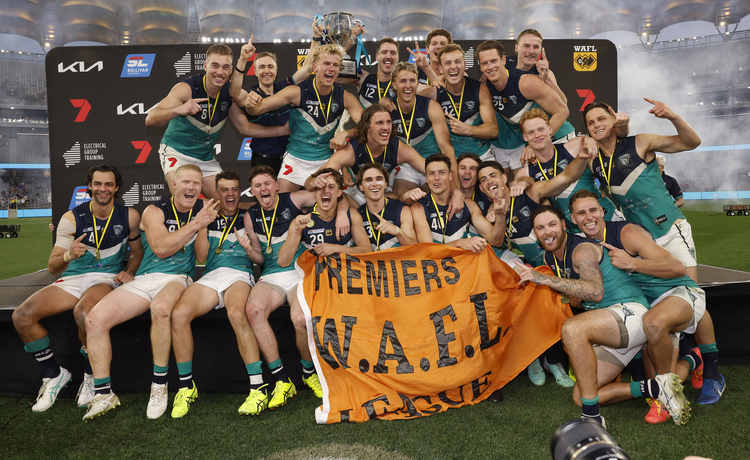Craig Foster’s Hall of Fame Legacy in Football, Society

- by Admin
- November 28, 2024

Former Socceroos Captain, broadcaster, and advocate for player rights, multiculturalism, and social justice through football, Craig Foster AM was inducted into the Football Australia Hall of Fame on Thursday night at Brisbane’s Suncorp Stadium.
Foster had a wide-spanning career, playing in the National Soccer League (NSL) before moving over to England where he featured for the likes of Portsmouth and Crystal Palace.
The 55-year-old’s journey began when he represented Australia in the inaugural 1985 FIFA U-16 World Championship. As Socceroo Cap #419, he went on to earn 29 caps for his country and served as the 40th captain of the Australian Men’s National Team.
Foster then moved into an extensive broadcasting career with SBS, where his passionate commentary during the Socceroos’ 2005 FIFA World Cup™ qualifier against Uruguay, broadcast on SBS, symbolised his deep commitment to the game.
Over a distinguished 20-year broadcasting career, Foster provided in-depth analysis and promoted football literacy across men’s and women’s FIFA World Cups, Olympic Games, and UEFA Champions Leagues.
A fierce advocate for football’s role in promoting multiculturalism, Foster, a former NSW Australian of the Year, is a Life Member of Professional Footballers Australia (PFA), where he also served as CEO and Chair.
He is the Patron of Indigenous representative teams and has led successful youth teams, including winning the National Championships with NSW.
Beyond the pitch, Foster’s advocacy for human rights has resonated globally, with his leadership in the #SaveHakeem campaign standing out as a notable example of his dedication to justice.
We spoke with fellow broadcaster David Basheer and former Socceroos captain and 2007 Hall of Fame inductee Alex Tobin to better understand who Foster is.
Foster, the broadcaster
Basheer recalled his first memories of Foster during the attacking midfielder’s time with Sydney Croatia in the NSL.
“I met him when he was playing for Adelaide City in the mid-90s, and he was injured at the time,” Basheer told us.
“We commentated on local football, the NPL, as it was known back then, the state league. And my first impression was this guy lacks no confidence.
“He was pretty unconventional. Truth be known, he didn’t really enjoy co-commentating. I think it didn’t allow him enough time to get his point across, but he had to commentate occasionally.
“He was just honest, sometimes beyond belief. Not everybody shared his views, but you could never criticise him for not being authentic.
“I think he was acutely aware of the legacy that Johnny Warren stamped on SBS, and his passion for Australian football, wanting the best out of the game in this country. He agitated for the best possible playing style, reflecting culturally, the kaleidoscope of ethnic groups in this country.”
Foster, the player
Meanwhile, ex-Socceroos skipper Tobin first came across Foster when playing against him in the NSL, before the pair became teammates at Adelaide City in the mid-90s.
“We had good memories there, and a lot of success at that time as well. So I knew him very well as a player that I’d played against and played alongside him in a pretty short space of time. He was then involved with the Socceroos, where I was as well. We’ve obviously known each other for years and years since then,” Tobin said.
“He was a very good player – an attacking midfielder, he scored goals. He played with Adelaide City, who would have been a form team at the time, and Marconi were some of our biggest rivals. So, certainly two of the better clubs in the NSL at that time.
“His style was very aggressive, attacking, he scored goals, which coaches tend to like.
“We were both coached by Zoran Matic [at Adelaide City], a character in his own right. And so Fozzy had to get used to him.
“And I think although Zorin has his ways, and he and Craig would have clashed, and everyone would have clashed with him at some stage. I think after they finished with him, they realised what good coaching was. And how you can benefit as a player when listening to these sorts of guys as well.”
Foster soon made it into the Socceroos set-up, and Tobin reflected on what would have been a highlight for him competing in the Confederations Cup Final in 1997.
“So if people remember the 1997 Brazil side, that had Dunga, Romario, Ronaldo, Denilson – I could go on and on, 11 players that most people listening to would understand, and we drew with them, which is a fantastic result,” Tobin continued.
“We beat Uruguay in the semi-final, courtesy of a Harry Kewell goal, and we made the final.
“We were trounced in the final, but just the memory of making the Confederations Cup Final, competing against the best teams in the world and succeeding against the best teams in the world, I think, from his point of view, would have been great.”
Foster and the game
Basheer believes that Foster has a clear vision for what Australian football should be aspiring to be.
“I think he felt Australia should reflect the best version of itself in the way it played football,” Basheer explained.
“And that didn’t always mean the best result, but the best performance for him was important, and I think that’s the way he agitated for change within that structure, wanting the foreign coaches who coach the Socceroos to reflect that in our culture.”
Tobin adds that these views were apparent when facing some of the footballing powerhouses of the world.
“Even in the time when we were involved with the Socceroos, we played against Brazil many times, Uruguay and other South American teams, and he certainly would have had a love for the way they do things as well,” Tobin said.
“I think he was certainly an intelligent person who thinks about the game apart from just playing.
“And it proved to be, obviously, with his outstanding football career.”
Foster, the advocate
Foster shot to national attention in 2018 when Bahraini footballer Hakeem al-Araibi was detained in a Thai prison following an extradition request from Bahrain.
The Bahraini international had fled his country of origin as a refugee, dissenting against the treatment of people in the country. And Foster, a passionate advocate for human rights, played a key role and showed tremendous leadership in the campaign to free Hakeem.
Basheer recalls the story well.
“I think he’s got a very strong sense of social equity in this country and the way that should be reflected. As he’s got older and matured, studied and learned, I think he’s realised that sport has a responsibility to uphold human rights and call out injustice,” Basheer told us.
“I remember having a coffee with Foz at the time that this story broke. He was weighing up what the best approach was and when all the facts were with him, he realised very quickly that if he went back to Bahrain, it was very likely that he would lose his life.
“So at that point, he made the decision to go 100% into trying to save this young man’s life.
“And inevitably that change and that advocacy saved the young man’s life.”
As a result of Foster’s dedication to the cause, and that of many others, Hakeem was returned to Australia and became an Australian citizen in 2019.
Foster has also been an advocate through the Professional Footballers Australia (PFA), working tirelessly to ensure fair bargaining agreements for footballers in Australia.
“Now we have relevant debate about the conditions of the Socceroos, the Matildas and so on, as opposed to no debate at all, or things that were really difficult for players even to just address,” Tobin stated.
“You couldn’t talk about how much you were going to get paid. You had no idea that new players coming into the Socceroos, just literally weren’t paid or were paid very little.
“Now, speaking to Jackson Irvine and others about where they sit, they’re in a much happier space, or a more knowledgeable space, than I was as their predecessor.
“It’s a credit to his [Foster’s] character that the causes that he fought for aren’t necessarily the ones that are going to build a career or anything of that nature. He took a pathway to do what was morally and socially and economically correct.
“To be involved in the PFA in such a major way that he has been for many, many years, the #SaveHakeem project, his position on asylum seekers and basically human rights, all of these things he takes very, very seriously.
“Clearly, he has been successful in advocating for those causes, and I applaud him for that, but it also says it’s a measure of the respect that people hold for him.”
The Latest News
-
December 23, 2024Australian tennis star Max Purcell suspended for doping violation
-
December 23, 2024Aussie Purcell accepts provisional tennis doping ban
-
December 23, 2024Aussies complete series clean sweep against New Zealand
-
December 23, 2024Annabel Sutherland’s sizzling summer continues as Australia ease to win over New Zealand
-
December 23, 2024BREAKING: Aussie grand slam champ accepts anti-doping ban




